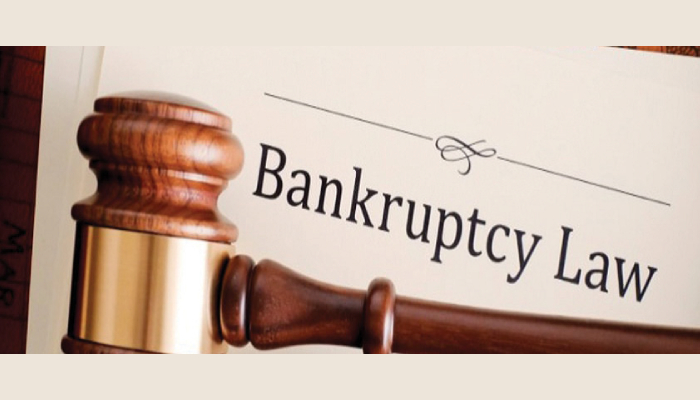
or

The Supreme Court held that, even after a winding up petition has been admitted, and a liquidator has been appointed (with such liquidator taking over the assets of the company), the Company Court can, in its discretion, transfer such proceedings to the National Company Law Tribunal (‘NCLT’) as an application under the Code. It was clarified that the criteria, on the basis of which the Company Court will exercise its discretion to transfer (or not transfer) proceedings, would be irreversible if actions have already been undertaken by the liquidator (such as the sale of assets).
The Delhi High Court held that the question as to whether the NCLT has jurisdiction to entertain a particular case or not cannot be determined by the Registrar in the administrative capacity. The Registrar would have to place the matter before the appropriate bench of the NCLT, for the said question to be judicially determined.
The National Company Law Appellate Tribunal (‘NCLAT’) held that allegations with respect to the undertaking of preferential and fraudulent transactions are required to be scrutinized by the Adjudicating Authority itself, and that the Adjudicating Authority cannot refer the matter for investigation to the Ministry of Corporate Affairs.
The NCLAT observed that the NCLTs have the power to conduct preliminary inquiries under S. 340 of the Code of Criminal Procedure, 1973 (CrPC) into any offence referred to in S. 195(1)(b) of the CrPC, for the purpose of deciding whether to make a complaint in writing to the Magistrate. Consequently, the NCLAT set aside the observations of the NCLT, Amaravati, insofar as it had observed that it did not have the jurisdiction to order criminal prosecution.
A 5-member bench of the NCLAT held that a decision passed by it vide a coordinate bench in V. Padmakumar v. Stressed Assets Stabilization Fund (‘V. Padmakumar’) did not suffer from any infirmity, insofar as the said decision had held, by a 4:1 majority, that entries in the balance sheets of Companies cannot be treated as acknowledgement of debt for the purposes of S. 18 of the Limitation Act, 1963. The present decision also reiterated that the resolution process (CIRP) cannot be treated as being akin to recovery proceedings, and that the adjudication of civil disputes and complex issues is impermissible within the ambit of the Code. Consequently, the present decision expressed its strong disapproval of the order of reference by a 3-member bench doubting the correctness of the decision in V. Padmakumar. The present decision noted that a smaller bench cannot sit in appeal to appreciate the correctness of a previous decision passed by a larger bench, and that judicial discipline and propriety demanded that the smaller bench ought to merely express its doubts as to the correctness of the decision of the larger bench, and to accordingly make a reference to a bench of the same strength as the one that delivered the decision under reference.
The NCLAT observed that no harm will be caused if an attempt is made to save the Corporate Debtor from liquidation, and consequently permitted a Resolution Applicant to submit its Resolution Plan before the CoC, notwithstanding the fact that the said Resolution Plan had been formulated after the decision of the CoC to pass a resolution for liquidation of the Corporate Debtor. Resultantly, the NCLAT directed the Resolution Professional (RP) to take the requisite steps to place the Resolution Plan before the CoC.
The NCLAT held where an application for initiation of CIRP under S. 10 of the Code is filed, the same would be liable to be dismissed if the pre-requisite of approval by special resolution, as enshrined in S. 10(3)(c) of the Code, had not been fulfilled. It was further held that an application under S. 10 was liable to be rejected, if it was apparent that such proceedings are sought to be initiated merely to frustrate debt recovery proceedings initiated against the Corporate Debtor, under other enactments. It was additionally observed that the requirement of Form 6 under Rule 7 of the Insolvency and Bankruptcy Board of India (IBBI) (Application to Adjudicating Authority Rules), 2016 wherein details of directors is a mandatory prescription, irrespective of whether all the directors of the Company were suspended under S. 164 of the Companies Act, 2013.
The NCLT, Ahmedabad Bench held that the Corporate Debtor cannot be treated a MSME and cannot take the benefit of MSME when, on the date of filing application under Section 9 of the IBC Corporate Debtor does not fall under the criteria of MSME.
Tags: Dhir & Dhir Associates
Dhir & Dhir Associates is a full-service Law Firm and brings to the table expertise and experience of more than two decades across various sectors and practice areas. The firm has been recognised as a leader in Restructuring and Insolvency and widely acclaimed for Banking & Finance, Capital Markets and Securities, Infrastructure, Corporate Advisory, Telecom and Dispute Resolution.

Lex Witness Bureau

Lex Witness Bureau

For over 10 years, since its inception in 2009 as a monthly, Lex Witness has become India’s most credible platform for the legal luminaries to opine, comment and share their views. more...
Connect Us:


The Grand Masters - A Corporate Counsel Legal Best Practices Summit Series
www.grandmasters.in | 8 Years & Counting
The Real Estate & Construction Legal Summit
www.rcls.in | 8 Years & Counting
The Information Technology Legal Summit
www.itlegalsummit.com | 8 Years & Counting
The Banking & Finance Legal Summit
www.bfls.in | 8 Years & Counting
The Media, Advertising and Entertainment Legal Summit
www.maels.in | 8 Years & Counting
The Pharma Legal & Compliance Summit
www.plcs.co.in | 8 Years & Counting
We at Lex Witness strategically assist firms in reaching out to the relevant audience sets through various knowledge sharing initiatives. Here are some more info decks for you to know us better.
Copyright © 2020 Lex Witness - India's 1st Magazine on Legal & Corporate Affairs Rights of Admission Reserved